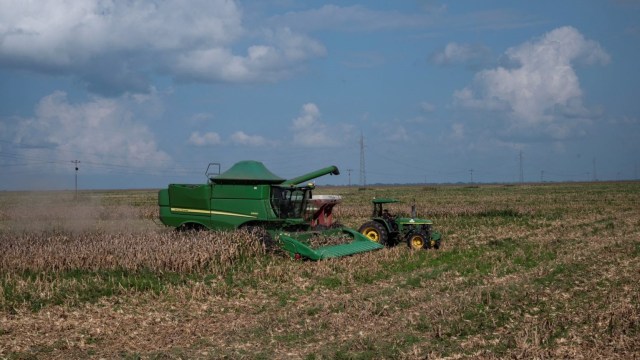
Caracas – In Venezuela, especially in the agricultural sector, more questions than answers abound concerning the possibility that the country could be giving Iran 1million hectares of farmland, as IranianDeputy Interior Minister for Economic Affairs Mohsen Kousheshtabar told IranianTasnim News Agency in late July.
By Diálogo Américas
Aug 12, 2022
The Nicolás Maduro regime did not addressthe statements, yet in June, during his visit to Iran, Maduro signed cooperation agreements in several areas, and when referring to joint projects to produce food in Venezuela and export it to Iran, he insisted that the country has 30 million hectares of land for cultivation “perfect, with water, with a stable climate.”
Currently, some 3 million hectares are productive land, Maduro then pointed out.
“The Iranian territory, 70 percent, more or less, is desert. They produce all their food in 30 percent of the territory. They have even created technology to produce food in desert areas, that is why the [Venezuelan] Minister of Agriculture Wilmar Castro Soteldo came, to prioritize two things: The first is technological cooperation to produce more food in Venezuela, to learn from all this impressive experience to continue increasing our agri-food production with our own resources on Venezuelan soil,”Maduro said on June 12.
Following the statements of the Iranian official, many Venezuelans wonder: Can Venezuela cede land to Irán?
The answer is no according to the legal framework.
“The territory may never be ceded, transferred, leased, or in any way alienated, even temporarily or partially, to foreign states or other subjects of international law,” Article 13 of the Venezuelan Constitution establishes.
According to Juan Fernando Marrero, anagronomy engineer and lawyer expert in agrarian law, reviewing the terms of the agreements is a must, but he doesn’t believe that it would construe a “territorial handover.”
But, can land for production, for example, be given to investors through an agreement? Yes, through concessions, the expert says.
“It’s been done throughout history with oilwith foreign companies and enterprises, whether private or state-owned. The problem with this whole issue is that there is a lot of opacity, there are no details that allow us to clearly define the terms of the agreement, but there is that possibility,” he told Voice of America (VOA).
Implications
When asked by VOA about the geopolitical implications, Marrero considers that the fact that both countries are under international sanctions could have consequences within the framework of international law.
He also recalls that the crisis in Venezuela has led to food insecurity and malnutrition for a large part of the population, especially the most vulnerable.
He also wonders what the real motives are, while referring to statements by Iranian officials who have expressed interest in expanding their agricultural frontier abroad.
“The terms of the agreement must be known because what can be deduced from these motives is that they would use advantageous terms […],” he says.
How could Venezuela benefit? Perhaps in terms of technology transfer, says the expert, but he points out that many Venezuelan agricultural producers have developed their own technology adapted to the country’s natural conditions.
“In agriculture one cannot improvise, it’s a very complex activity that depends on random factors that, even with all the technological development, human beings cannot control, for example, climate change[…],” he says.
Questions
Opposition political leader Carlos Prosperi questioned the possible handover to Irán of what would be equivalent to 80 percent of the state of Táchira that borders Colombia.
“Agricultural programs aimed at solving the crisis that the Venezuelan countryside is going through must be provided. Our producers need to be provided with inputs, diesel to move agricultural machinery,” he said in a press conference.
Many problems
Representatives of the Venezuelan agricultural sector insist that production faces many obstacles, because, in addition to legal insecurity, failures in basic services and frequent fuel supply failures, producersalso fail to secure the loans for necessary investments, for example, the replacement of machinery, and the acquisition of seeds,and other inputs for cultivation.
In addition, they stress that the economic policies implemented by the regime, including the expropriation of food producing companies, as well as the absence of guarantees that have “undermined” private property rights, have contributed to the growth of food insecurity in Venezuela.
According to the most recent National Survey of Living Conditions (Encovi), the situation “continues to deteriorate” and, between 2020 and 2021, recorded an increase in severe food insecurity thatstands at 24.5 percent.
According to the most recent report on the state of food security and nutrition in the world, published by the Food and Agriculture Organization of the United Nations (FAO) and four other agencies, Venezuela is the second country in the region with the highest prevalence of hunger behind Haiti.
…
Read More: Diálogo Américas – Could Venezuela give farmland to Irán?
…

